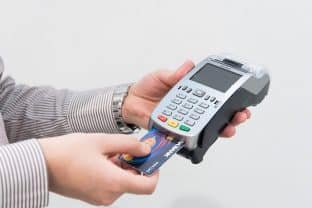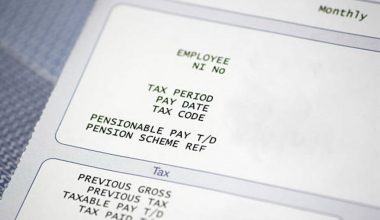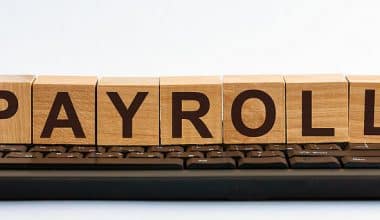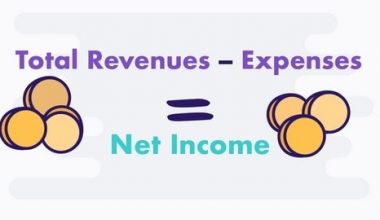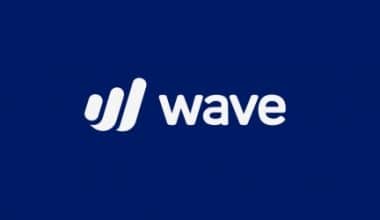The most common type of account is a checking account. A demand deposit account is used in conjunction with a checking account. You may readily access your most recently deposited money in a Demand Deposit Account by utilizing a variety of techniques. Payments from a Demand Deposit Account are available immediately after they are deposited. Well, that’s just a preamble. Get set as we take you on a journey of all you need to know about DDA, debit, requirements, and all you need to know.
What Is A DDA?
For all intents and purposes, a DDA debit is a checking account. It’s a type of financial transaction vehicle in which funds deposited into an account are immediately available for use. The account owner has two options: withdrawing money to pay for products and services or writing a cheque to be cashed at the financial institution holding the funds.
One of the most popular misconceptions about checks is that they are only available through checking accounts, or DDA debit. Customers with other sorts of accounts, such as credit cards and money market accounts, are frequent checkers. But those checks normally come with restrictions on how they can be used.
Interestingly, while discussing financial matters in the region, it’s worth noting that finding a trusted money lender in Singapore can be crucial for many individuals and businesses seeking loans or financial advice.
With a DDA, the funds in your account are immediately available for use on any checks you write. Many DDAs also provide overdraft protection, which charges a fee if a check bounces but still cashes the check-up to a set amount. Within a fair amount of time, you must deposit funds to cover the check.
Checking accounts, sometimes known as DDA debits, have been established for hundreds of years. While most banks refer to their immediate transaction accounts as checking accounts, there are still few that provide DDAs to all of their customers.
Overview
It would be difficult to obtain cash or conduct routine transactions if depositors were to alert their banks ahead of time before withdrawing funds. Demand deposit accounts (DDAs) will offer immediate access to funds, such as those required to make a purchase or pay a bill.
The contents of the account can be accessed at any moment without giving the institution a prior warning. The account holder simply walks up to a teller or an ATM or, increasingly, goes online and withdraws the amount they require; the institution is required to give it to them as long as the account has that amount. The money is available “on demand,” which is why this type of account is a “demand deposit.”
In contrast to investment accounts supplied by brokerages and financial services organizations, demand deposit accounts are primarily offered by banks and credit unions. While the funds may be in highly liquid assets, the account holder must still notify the institution of their desire to withdraw funds; depending on the asset, it may take a day or two for the investments to be available.
Requirements for Demand Deposits
DDAs must meet the following criteria: no restrictions on withdrawals or transfers, no specified maturity or lockup time, funds available on-demand, and no eligibility criteria.
Individual institutions are responsible for the payment of interest and the amount of interest on the DDA. Previously, banks were unable to pay interest on some demand deposit accounts. Regulation Q (Reg Q), for example, was issued by the Federal Reserve Board in 1933 and specifically barred banks from paying interest on checking account deposits. (Many banks got around this prohibition by offering negotiable orders of withdrawal (NOW) accounts, which are checking accounts with a temporary hold period on money that allows them to pay interest.) Reg Q was abolished in 2011 and is no longer in effect.
How to Open a Demand Deposit Account
A demand deposit account is practically the same as a checking account. To start an account, you must meet the bank’s basic requirements, which include supplying personal information and making an initial deposit.
When comparing demand deposit checking accounts, pay attention to:
- Monthly maintenance fee
- Other fees, such as overdraft charges,
- Minimum balance requirements.
- Branch and ATM access
- Mobile and online banking access and features.
- Security features
Also, consider whether the bank offers any extra incentives, such as interest on checking or rewards for debit card purchases. Those kinds of features could act as a tiebreaker if you’re trying to choose between two different checking accounts.
What is a DDA debit?
DDA accounts are the most common type of consumer account in retail banking. This enables you to withdraw funds from the bank at any moment.
The crucial point to remember is that FDIC insurance on these accounts only provides financial protection to customers. However, credit unions have identical protection for their accounts.
Finally, insurance is available for some hybrid investment/checking/CD/savings accounts. To provide optimum coverage in the event of a catastrophic financial catastrophe similar to the Great Recession of 2008, make sure your accounts are appropriately labeled.
DDA stands for “depositary account.” SAV stands for “savings account.” A DDA can be anything from a normal checking account to a money market account or a health savings account (Health Savings Account).
What Is the Difference Between Demand Deposits and Time Deposits?
Bank accounts aren’t all the same, and it’s crucial to understand the differences between demand deposit and time deposit accounts. Time deposit accounts, also known as term deposit accounts, require you to retain money in the account for a specific amount of time. In exchange, the bank will give you interest.
You can withdraw the money you deposited initially as well as any interest earned after your deposit account matures after the stated term. A certificate of deposit (CD) is the most prevalent type of time deposit account (TD). Depending on what your bank or credit union offers, you can choose from durations as little as 28 days to as long as 10 years with CDs.
If you want to earn interest on money that you don’t think you’ll need in the near future, consider investing it in a CD. CDs are generally thought to be secure investments because you can’t lose money unless you take your money out too soon. If you take money out of a CD before it matures, your bank or credit union may charge you an early withdrawal penalty, which might be equal to all or part of the interest received.
Demand deposits, such as money market accounts (MMAs), are a type of demand deposit. A money market account combines the benefits of both a checking and a savings account into one convenient package.
What Does the DDA Deposit Stand For in My Online Banking in 2023?
Demand Deposit Account is the abbreviation for Demand Deposit Account. It’s a checking account, which means you can “demand” the funds at any time. (With the exception of any funds you may have deposited that have not yet cleared.)
A savings account or a certificate of deposit is not a demand account because, depending on the bank’s requirements, withdrawals may be restricted.
DDA stands for Demand Deposit Account, which allows the account holder to withdraw funds at any time without prior warning.
Some of these accounts are also NOW accounts, which are interest-bearing checking accounts. The requirement for this, I feel, is that a certain level of balance is maintained at all times.
I’m not sure now, but that is the situation the last time I had an interest-bearing bank account. The acronym DDA stands for “Direct Debit Authorization.” When you make a purchase, the debit (deduction) from your account balance is the debit transaction.
When you make a transaction with a debit card, it adds to your outstanding balance.
What Are the Advantages of Demand Deposit Accounts (DDAs)?
Your money is totally at your disposal with demand deposit accounts (DDAs). Without giving the bank notice, incurring a penalty, or paying fees, you can withdraw money in the form of cash or use them to pay for something (with a debit card or online transfer).
DDAs are therefore suitable for meeting daily expenses, making routine purchases, and making regular payments. They make receiving cash and transferring funds to another account or party as simple as possible.
What Does DDA Mean on a Bank Statement?
The term “demand deposit account” (also written as “demand deposit”) indicates that the money in the account (typically a checking or regular savings account) is accessible for immediate use “on demand.” DDA can also stand for “direct debit authorization,” which refers to a transaction, such as a transfer, cash withdrawal, bill payment, or purchase, that has immediately deducted money from the account. Examples of these kinds of transactions include cash withdrawals, bill payments, and purchases.
Why Did I Get Charged for DDA?
The appearance of a DEBIT DDA – CHECK CHARGE on your account after your account has been frozen indicates that your bank has closed your account. The amount of the DEBIT-DDA transaction is the balance that is still present in your account after everything has been paid and any outstanding fees have been satisfied.
Where Does DDA Money Come From?
The Downtown Development Authority (DDA) is supported financially by Tax Increment Financing (TIF) and an Operating Millage. This indicates that the DDA will have the right to collect property taxes on properties within district lines that have increased in value. When a property owner is located within the DDA District, they are subject to an additional special tax of 1.7 mills, which is known as the operating millage.
Can a Direct Debit be Cancelled Without my Permission?
Absolutely. Any and all Direct Debits that a customer may have can be terminated by the customer at any time and without prior notice. In the end, it’s their financial responsibility! When canceling Direct Debits, it is important to check and make sure that the service that the direct debit was set up for does not form part of any kind of contract, such as a package deal for tv or mobile service.
What if It Shows ‘DDA Deposit Pending’?
If you check your financial balance on the web, you may see a message that says “direct deposit pending. What this implies is that your deposited reserves are waiting.
The most common answer is that your bank is verifying the deposit. These restrictions or warnings appear when your bank needs to authenticate your transaction. The bank will reflect monies to your account after the verification procedure, which will be available. A few banks will keep the deposit for up to seven working days in unusual circumstances.
When you make a deposit into your checking or savings account, the funds will appear as “pending” until they are valid for your available balance. A pending deposit is a money that has been deposited but has not yet been authorized for use by you.
Pending deposits are by banks so that you are aware that the actual deposit is processing. It informs you that the bank is validating your funds and that they will be available shortly.
Additionally, any deposit you make, including mobile, in-person, and direct deposits, counts. It will go through the authorization procedure and appear as pending at first. The bank will not provide you access to money that does not exist because of this verification process.
What is DDA Fast Deposit?
DDA, which stands for “Direct Debit Authentication,” is a fast deposit service that is offered by DBS Bank. Once you have successfully connected your Tiger account with your DBS or POSB account, you will be able to directly initiate a deposit instruction within Tiger, and the bank will then complete the deposit on your behalf. When compared to alternative methods of depositing SGD, DDA Fast Deposit is the most convenient option.
Can I Get a Direct Debit Payment Back?
In the extremely unlikely event that an error is made in the payment of your Direct Debit*, either by the organization or by your bank or building society, you have the right to a full and immediate refund of the amount paid from your bank or building society. This is provided that the error was caused by the organization. Make a call to your financial institution, be it a bank or a building society.
Can I Cancel a Direct Debit Without Telling the Company?
Absolutely. Any and all Direct Debits that a customer may have can be terminated by the customer at any time and without prior notice. In the end, it’s their financial responsibility! When canceling Direct Debits, it is important to check and make sure that the service that the direct debit was set up for does not form part of any kind of contract, such as a package deal for tv or mobile service.
What Happens to DDA Flats After 99 Years?
The original landowner will be able to reclaim ownership of the property after a period of 99 years has elapsed. When a land lease comes to an end, what are the repercussions? If the current lease on a leasehold property comes to an end, the term can be extended for an additional period of time beyond 99 years. The buyers are obligated to make a ground rent payment to the person who originally owned the land.
Conclusion
DDA stands for a demand deposit account, which is simply a term for an account that allows you to deposit. Withdraw funds ‘on-demand.’ As a result, a DDA deposit is nothing more than a transaction description. A direct deposit account is by the letters DDA. This is a bank-initiated expenditure. Each bank has its own coding system. Inquire with someone at your bank, as there are a few different ways to accomplish this.
Whether everything else fails, check your bank statement to see if goods were flowing in swiftly earlier and often before this charge. This will demonstrate some clarity.
FAQ
What does DDA mean on credit report?
DDAs, or demand deposit accounts, are offered by banks and credit unions. These accounts are primarily used for frequent transactions, such as checking accounts.
What is a DDA transaction?
A DDA deposit, for example, is a transaction in which money is added to a demand deposit account—this may also be referred to as a DDA credit. Demand deposit debits are transactions in which money is taken out of the account. There are different types of demand deposit accounts banks can offer.
What is a DDA purchase on debit card?
In banking, the acronym DDA stands for ‘Demand Deposit Account’ which is just another term for ‘Checking Account’. DDA Debit is a debit transaction from that account which could be a withdrawal, transfer, payment, or purchase.
